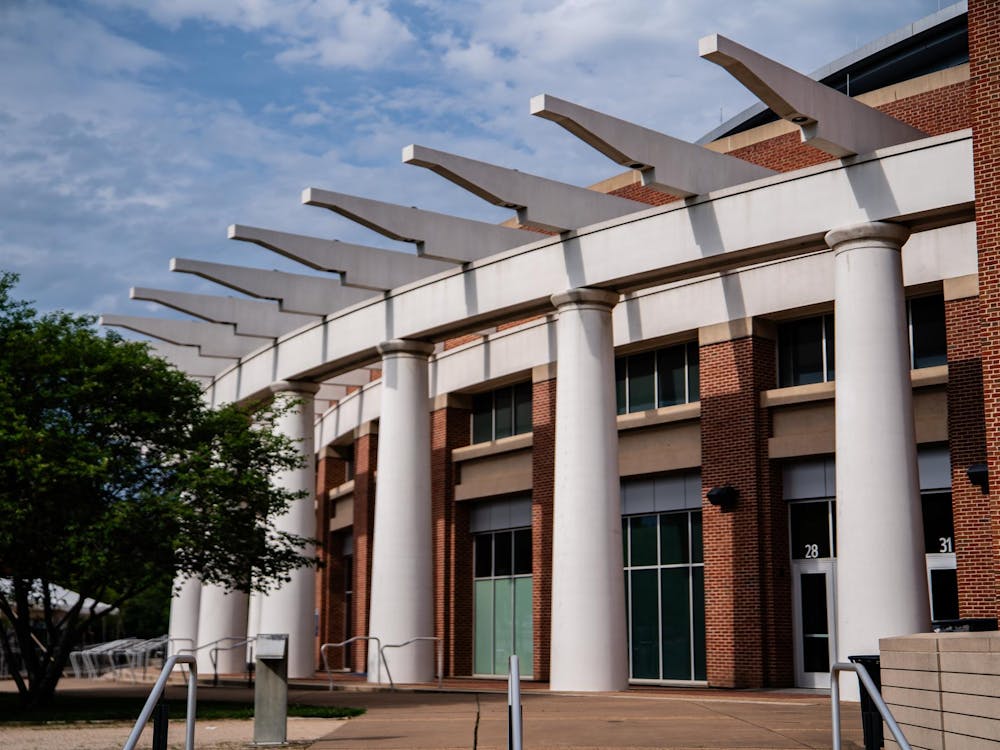U.S. District Court Judge Warren G. Moon ruled yesterday that University President John T. Casteen III and the Board of Visitors have no supervisory liability in former student Richard Smith's $1.25 million lawsuit.
While the decision effectively dismisses both Casteen's and the Board's liability in the lawsuit, individual UJC members and William W. Harmon, vice president for student affairs, still face liability for their roles in the Smith case.
Smith filed his lawsuit in July 1999, alleging the administration does not sufficiently train University Judiciary Committee members.
The lawsuit stems from Smith's two-year suspension for his role in a Nov. 21, 1997 assault of then-first-year student Alexander "Sandy" Kory.
The plaintiff's claim that the UJC violated Smith's constitutionally protected due process rights still is in contention. The jury still will decide on this issue and whether Harmon violated Smith's due process rights.
|
The judge's ruling came in response to the University's motion for a directed verdict for the supervisory liability claims.
A judge can either grant such a motion, finding in favor of the defendant, or deny the motion, in which case the trial would resume.
Smith's lawyers claimed Casteen, Harmon and the Board members had knowledge that there is a "propensity for due process violations" in the UJC process, but showed "deliberate indifference" towards this knowledge.
Despite the ruling that Harmon still will face liability charges, the University maintains he was unaware of the UJC having any problems in dealing with UJC defendants' due process rights.
"Harmon has testified that he had no knowledge of due process violations in Judiciary Committee hearings," said Richard Kast, general counsel for the University.
Harmon granted Smith a retrial after the UJC expelled him in the original November 1998 UJC trial. Finally, in June 1999, Casteen suspended Smith for two years, ending the appeal process.
In yesterday's trial, Smith's lawyers emphasized similarities between the UJC and the Honor Committee. Both are student-run adjudicatory bodies that possess the power to expel students in the most extreme cases, they argued.
"The propensity for due process violations in Honor was so great as to have to appoint a legal advisor," said Dane Butswinkas, one of Smith's lawyers. "For years [the University has] known that these same problems in Honor apply to" the UJC.
The plaintiff's lawyers read a deposition from Casteen as their final witness. Several of the questions in the deposition dealt with previous Honor cases in which the defendants claimed their due process rights were violated.
Casteen stated that in regard to some of those cases, he did have "concerns about the application of constitutional principles" within the honor system. But he stressed that he was commenting on the Honor Committee, not the UJC.
Further, the president said allegations of due process violations seem to be "standard procedure" in cases "where one doesn't like the outcome."
The University responded to Smith's lawyers by calling into question Honor's relevance to the Smith case.
Judge Moon eventually agreed that due process violations in the Honor cases the plaintiffs referred to did not have any connection to UJC cases.
"I don't think there is a scintilla of evidence that anything like this has happened" in a UJC case, Moon said.
Earlier in the day, Smith's lawyers called several members of the UJC panel that convicted Smith in the original November 1998 trial to the stand.
John Hevner, the trial chairman, Elisabeth Summers, Kory's co-representative, and Steven Saunders, one of the trial judges, all testified yesterday.
Smith's lawyers challenged Hevner's experience and familiarity with UJC bylaws and the concepts of due process.
After yesterday's session, Kast said he generally is pleased with the trial, even though the judge did not dismiss the claim that Harmon is liable.
"I thought we had a good argument," Kast said. "Harmon is the direct supervisor and had no notice" of due process violations in Smith's UJC trial.
Butswinkas and Casteen both declined to comment on the case.
The trial is expected to conclude today.
(Cavalier Daily Associate Editor Emily Roper contributed to this story.)






